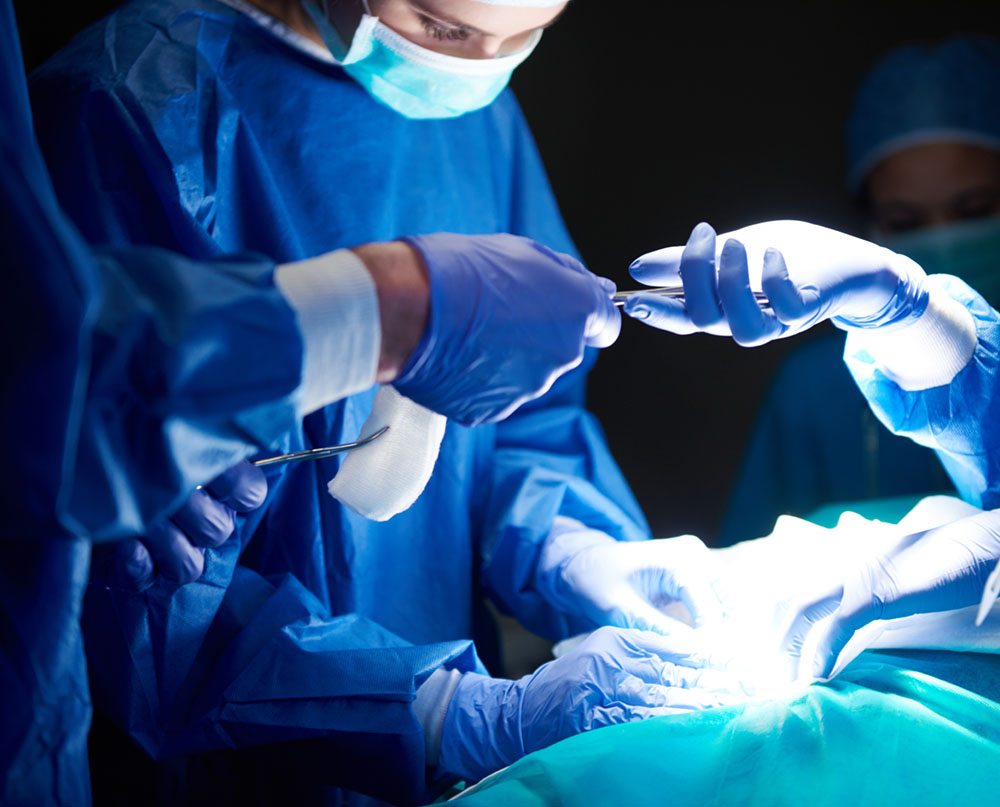Can a smart scalpel help brain surgeons remove tumours?
When a surgeon is removing a tumour, it’s not always easy to make sure that all the cancer cells have been eradicated. Removing too much healthy tissue is obviously undesirable, and sparing organ tissue is vital, especially when it comes to the brain. In recent years, scientists at the Maastricht MultiModal Molecular Institute (M4I) have therefore developed an ‘intelligent knife’, or iKnife. The European subsidy programme Interreg Flanders-Netherlands has made more than two million euros available for the further development of this technology.

Molecular Brain Tumour Detector
In partnership with UZ Leuven, the Maastricht scientists have now completed an extensive study on the instrument’s clinical application. This showed that the iKnife is able to recognise tissue from brain tumour in seconds as it cuts, with more than 98% accuracy. The iKnife is an electrosurgical instrument that creates smoke when it comes into contact with tissue during the operation. The smoke contains molecules that are a kind of fingerprint of the tissue. This provides information beyond what is visible, enabling the surgeon to distinguish a tumour from surrounding tissue. During previous tests, however, the large analysis device proved to be a major obstacle in the operating theatre. The research team is therefore now working on a handy screener that is much more user-friendly for brain surgeons.
‘Making our current iKnife, or molecular navigator, more compact is difficult, because as much as possible we want to avoid affecting the sensitivity and the accuracy of the present system,’ says M4I researcher Eva Cuypers. ‘This means we are facing some tough technical challenges. For example, we have to use a different type of detector to make everything compact. As a result, we will also have to develop a more compact component for the smoke input. Ultimately, the principle remains the same, so we can compare the molecular profiles provided by the new system with those of our previously developed model. Artificial intelligence will help us to see whether it’s really possible for us to translate our current model to the new system.’
Brain tumours
The iKnife is based on the analysis technique of mass spectrometry. It enables a significant improvement in surgical decisions. Around 60 per cent of brain tumour patients experience a relapse within five years of surgery, because the tumour has grown back from residual cells. What can the more precise tissue recognition offered by the iKnife mean in practice for individual brain tumour patients?
‘The iKnife will most likely lead to faster recognition of tumour cells during brain surgery,’ says Maastricht neurosurgeon Olaf Schijns. ‘This is possible thanks to the analysis of molecules in the smoke produced when using the iKnife. It allows us to remove a brain tumour faster and more completely, without affecting healthy brain tissue. Once we have sufficiently proven that the technique offers benefits for this specific patient group, it’s even conceivable that we will use it to treat other types of patients, such as those with severe epilepsy.’

The scientists have brought together a great team of researchers, surgeons and companies to develop the molecular navigator, thanks to the support of Interreg Flanders-Netherlands and the Province of Limburg, with co-funding by the Dutch government. Partnerships with companies such as Next Generation Sensors for the co-development of the compact navigator and Aspect Analytics for the statistical analysis and user-friendly interface are crucial, the researchers say. Neurosurgeons from Maastricht UMC+ and Zuyderland (Sittard) in the Netherlands, and UZ Leuven, Ziekenhuis Oost-Limburg (Genk) and AZ Groeninge (Kortrijk) in Belgium will provide input as end users throughout the development process and will test the molecular brain tumour detector.
Also read
-
Scientists at the biomedical MERLN Institute of Maastricht University and the Maastricht University Medical Center have succeeded in growing an embryo structure of human identical twins purely from stem cells, without using an egg or sperm cell. Thanks to this culture, scientists are now seeing for...
-
Living brains in a laboratory and research on internet freedom –two of the ten nominees for the Klokhuis Science Prize this year are UM scientists. And you can also vote!
-
Three research consortia recently received 3.1 million euros from the Dutch Research Council (NWO) and the Dutch Arthritis Society (ReumaNederland) for research into the early detection of osteoarthritis. Two of these three are Maastricht based projects.
